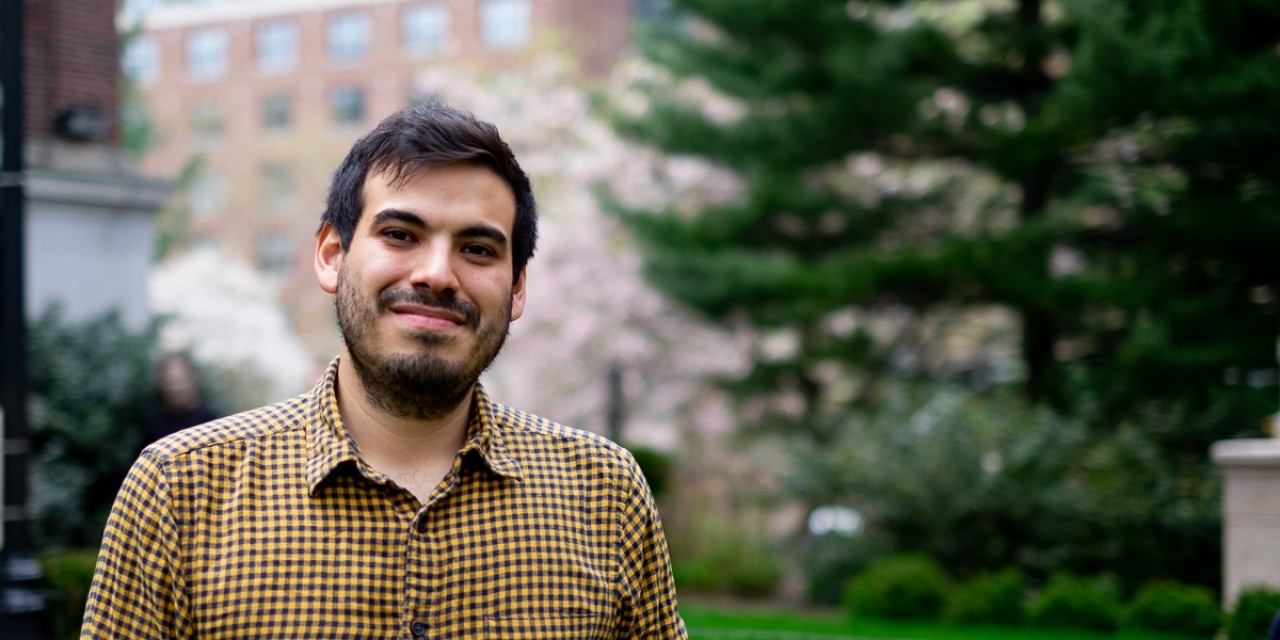Francisco Lara-García: PhD Candidate in Sociology

Where did you grow up?
This question is always a little bit hard to answer since I’ve moved so much. I grew up mostly in towns and cities along the Mexico-U.S. border—sometimes in Mexico, sometimes in the U.S. I’ve always joked that the best way to describe myself is as a border rat.
What drew you to your field?
Having lived in so many different places, I’ve always found it startling how similar people can behave in radically different ways if you just change the setting they’re in. I took it for granted when I was little, but as I got older, I started to realize that the explanations for this were not self-evident. Let me offer a quick example: Around the border, people in Mexico like to tell a folk story about how you can tell you’ve crossed into Mexico when you see people start throwing trash out their car window, something you never would have seen them do when they were on the other side. A lot of Mexicans love to use this story to moralize about the inherent corruption of Mexican society—I should add, I’ve never actually seen anyone do this – but, I think there is a more profound observation in this story: people do change the way they behave as soon as they cross a border. Jaywalkers in Mexico stop jaywalking in California for fear of fines, and otherwise responsible Americans drink more than they should when they’re in Tijuana. It’s stupid how much a yard in either direction of a fake line in the sand can change who you say you are and the way you act–but the fact remains that it does. Trying to explain why and how this happens was one of the things that drew me to the social sciences in general, and sociology, in particular.
How would you explain your current research to someone outside of your field?
You’ll start to see a thread in my interests. I was trained as an urban planner, so I’m always thinking about the importance of place. I study how arriving and living in different cities as an immigrant shapes and alters one’s socioeconomic trajectory. In even more concrete terms, I’m interested in assessing whether living in places as different as, say, New York City or Tucson, Arizona, actually sets immigrants on divergent paths towards socioeconomic success and well-being.
What is your favorite thing about being a student at Columbia GSAS?
I love my department. We’ve become a much closer group of scholars and staff in recent years, and I’ve felt very supported—intellectually and personally—as I navigate the PhD. I’ve also really enjoyed being a board member of the Students of Color Alliance. The sense of community I get from being around like-minded people makes the-day-to day much easier.
Is there a common misconception about a topic in your field that you wish you could correct?
The problem of “illegal” immigration is a really recent formulation of the issue in the United States. Historically, you could not talk about being undocumented in any meaningful sense because nations had a hard time keeping track of who was coming in and going out. Basically, if you were able to get to the United States, you could stay. The emergence of the “undocumented” concept is a contemporary phenomenon and it is intimately connected to rising government power and improved surveillance technologies. So, anyone who says that their ancestors came to this country legally in prior eras is misunderstanding that there was no “illegal” or “legal” entry to speak of a hundred years ago.
Who are your favorite writers?
A book that really changed the way I think is The Wayfinders: Why Ancient Wisdom Matters in the Modern World by Wade Davis. I was also recently introduced to Ryszard Kapuściński. I just finished The Soccer War and can’t wait to read more.
Who is your hero of fiction?
Goku! Who wouldn't want to be able to turn into a Super Saiyan?
Who are your heroes in real life?
My grandparents. On the money they scrapped together from owning a corner store, they somehow managed to raise ten kids in a two-bedroom house. I know I’m only able to pursue graduate studies now because of the firm foundation they set for my mom and my aunts and uncles. I’m incredibly lucky to be where I am.
Who in your field do you consider to be a role model?
W.E.B Du Bois. He was the first African American to earn a PhD from Harvard, wrote one of the first books that reads like contemporary sociology (The Philadelphia Negro) and still had a hard time getting an academic job. I think he did all right for himself outside of the academy! His story is a reminder to keep things in perspective, especially when it comes to the job market. We’ve got a long way to go, but we’ve also come a long way.
What music have you been listening to lately?
I’ve been listening to a lot of Lo-fi lately when I’m working. But, really I’ll listen to anything that isn’t distracting and sets a good working pace. Sometimes it’s Thelonious Monk or Coltrane. Other times Bach or Chopin really work. I went through a really long Colectivo Nortec phase right before I came to Columbia. When I’m not working, lately I’ve been really digging Mariachi Flor de Toloache, Chicano Batman, Natalia Lafourcade or really anything by Café Tacvba.
Where is your favorite place to eat on/around campus?
I eat at Broadway Au Lait at least once a week. The staff even knows my order now: The Mediterranean Plate!
